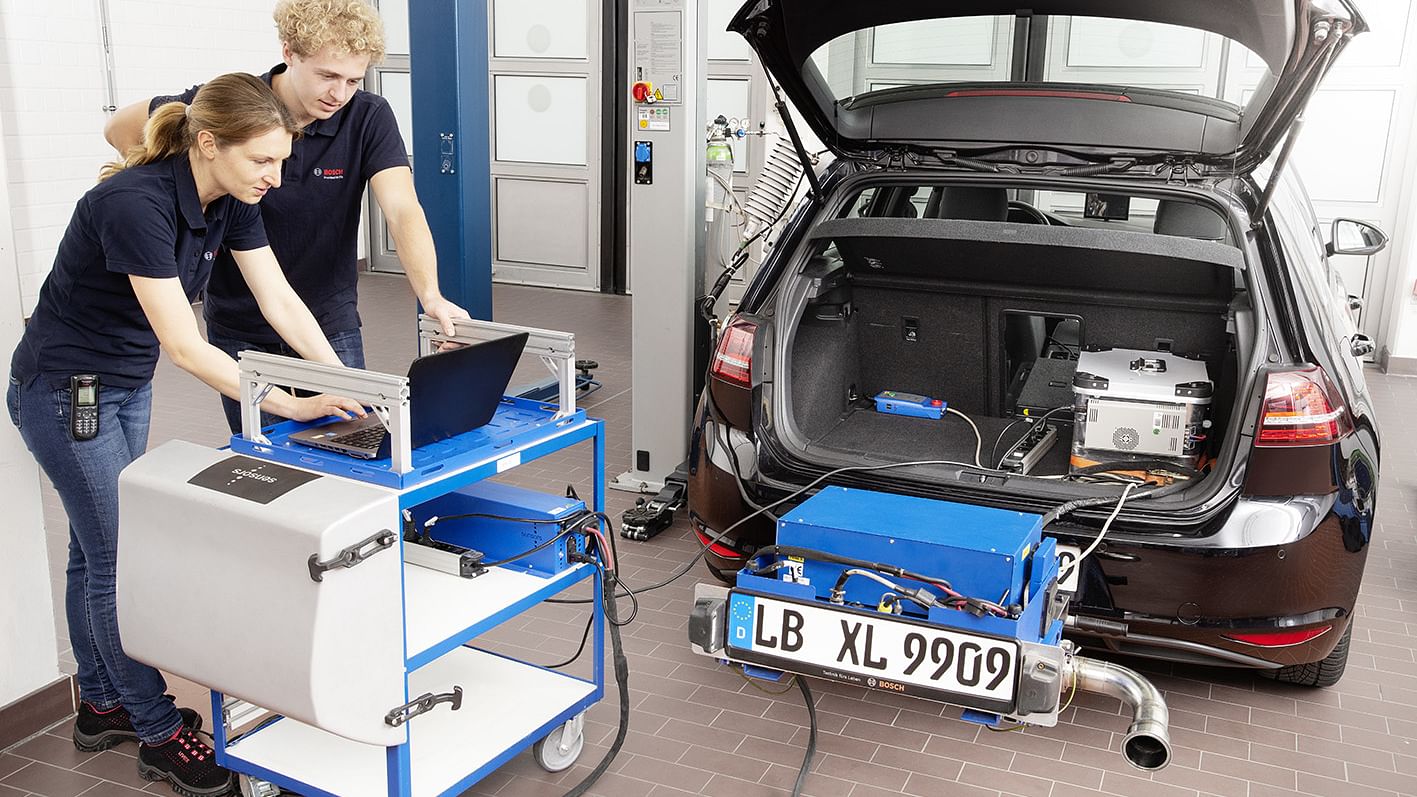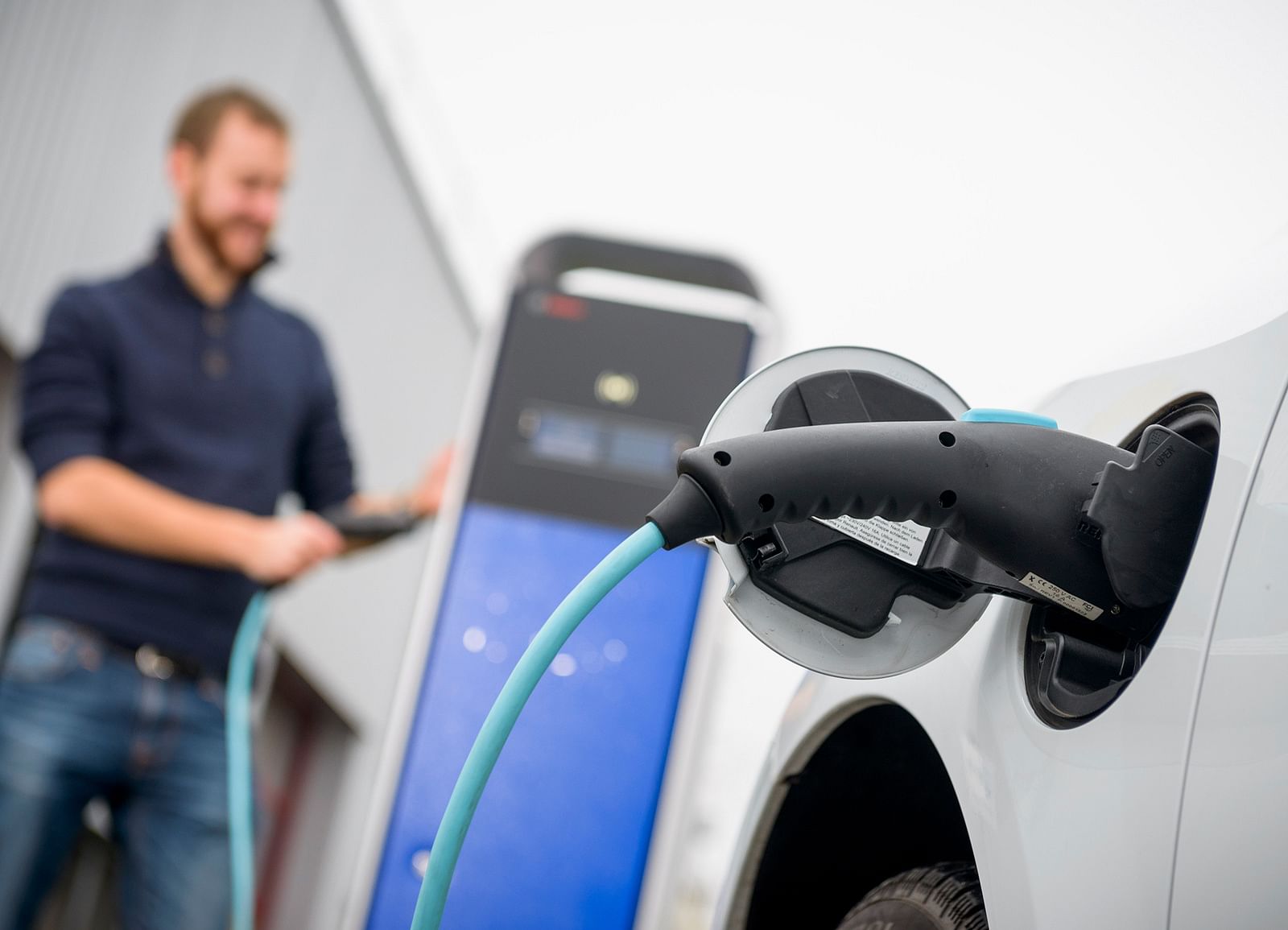Bosch reports record revenue in 2018, reaffirms target to go carbon neutral by 2020
The company is betting big on EV, fuel-cell stack and renewable to achieve its carbon-neutral target.
For German technology major, Bosch Group, 2018 was a successful year, the company's sales revenue came at record 78.5 billion euro (Rs 613,713 crore). The EBIT from operations was 5.5 billion euro (Rs 42,999 crore) and EBIT margin came at 7 percent. This the company claims was in spite of heavy upfront investments in areas such as electrification and automation of mobility.
Bosch says it has increased its expenditure on R&D to 7.3 billion euro (Rs 60,980 crore) or 9.3 percent of sales revenue, CAPEX increased by 14 percent to 4.9 billion euro (Rs 38,308 crore). The company also created almost 8,000 new jobs worldwide in 2018, with more than half of them in research and development.
For the current year, Bosch expects economic developments to be subdued, and expects the global economy to grow by just 2.3 percent. This it says will be on the back of trade disputes, high levels of debt in European countries, and the decrease in automotive production, which are among the factors putting a strain on the global economy. Despite the difficult environment in industries and regions that are important for Bosch, the company expects its sales in 2019 to slightly exceed their 2018 levels.
Bosch says the first three months of the year saw sales nearly on a par with the previous year, and regardless of this short-term outlook, the technology major is intensifying its efforts to combat climate change and improve air quality.
Dr Volkmar Denner, chairman of the board of management of Robert Bosch, at the company's annual press conference, said: “Climate change is not science fiction; it’s really happening. If we are to take the Paris Agreement seriously, then climate action needs to be seen not just as a long-term aspiration. It needs to happen here and now. We also take people’s concerns about clean air quality in cities very seriously. As an innovation leader, we want to deliver technological solutions to ecological problems.”
Moreover, Denner noted, “Driving bans, diesel protests, yellow vests, and Friday climate strikes – all this shows that companies need to take climate action and offer new solutions for urban air quality, not least to stabilize the social climate.”
Bosch aims to be first carbon-neutral industrial enterprise from 2020
According to the International Energy Agency (IEA), manufacturing is responsible for almost one-third of global carbon dioxide emissions. Bosch says this is reason enough for it to intensify its already successful efforts to reduce its CO2 output. “We will be the first major industrial enterprise to achieve the ambitious goal of carbon neutrality in a little over a year. From 2020, Bosch will have a net-zero carbon footprint,” Denner announced. “All 400 Bosch locations across the globe will be carbon neutral from 2020.”
To achieve this, the company will be using four major levers, Bosch says it will increase energy efficiency, increase the proportion of renewables in its energy supply, buy in more green power, and offset unavoidable carbon emissions. This it estimates will avoid 3.3 million tonnes of CO2 emissions by 2020.
Targeting near-zero pollution and power of AI in ICE-engine
According to the World Health Organisation (WHO), around 90 percent of the world’s population breathe toxic air. The German company has set an ambitious goal to reduce this: “We want to reduce air pollution from traffic to virtually zero. To do this, we’re looking beyond the car’s hood,” said Denner. The company’s project to reduce the concentration of air pollutants to near-zero levels is built on three pillars: developing low-pollutant powertrain technologies; working with municipal governments on projects to maintain steady traffic flows and is running a company mobility management system at its own locations.

Bosch forecasts that roughly 75 percent of all new cars and light commercial vehicles will still be powered by an internal-combustion engine in 2030. In view of this, it says it will continue to invest considerable sums in optimising gasoline and diesel engines. The company is also using artificial intelligence to further develop ICE-engines.
On the other hand the company at present is said to be in discussions with almost 100 municipal governments around Europe on what specific steps can be taken to improve air quality. In Stuttgart, Paris, and Marseille, Bosch is currently testing a mobile analyser unit, which can continuously measure the level of contaminants in the ambient air. Together with simulations, these readings will deliver further insights into the relationship between vehicle emissions and environmental pollution.
The third pillar of the project is the company mobility management, whose goal is to reduce traffic, and thus the emissions, for which Bosch associates themselves are responsible, particularly in conurbations.
The measures taken range from shuttle buses in large cities in Brazil, China, and Turkey, to telecommuting agreements and the leasing of bicycles and pedelecs. In addition, Bosch is also encouraging its employees to use connected mobility (ride sharing, carpooling).
E-mobility: 14 million vehicles by end-2022
Bosch expects electric vehicles (EVs) to play a major part in improving air quality in cities, and in the emerging mass-market for e-mobility, it is striving to become market leader. By 2025, Bosch aims to generate 5 billion euro (Rs 39,090 crore) in sales with electric mobility, ten times the figure for 2018. “In the growing competition for value creation in the powertrain technology domain, we see good opportunities ahead. Our systems know-how, our broad product portfolio, and economies of scale in manufacturing make us the partner of choice for vehicle manufacturers and mobility providers worldwide,” added Denner.

The company says its powertrain components already feature in over a million EVs around the world, and by end-2022, this number is set to rise to 14 million. The Germany major says till date it has carried out powertrain projects for 50 EV platforms, and last year alone it acquired 30 new projects. “We also want to help fuel-cell technology make a breakthrough,” commented Denner.
To achieve this, the company recently announced an alliance with Powercell, a Swedish manufacturer of fuel-cell stacks. Such stacks make up two-thirds of the value of a fuel cell system. “Together with Powercell, we want to commercialise stacks and launch them by 2022 at the latest,” Denner said.
RELATED ARTICLES
Autoliv Plans JV for Advanced Safety Electronics With China’s HSAE
The new joint venture, which is to be located strategically near Shanghai and close to several existing Autoliv sites in...
JLR to Restart Production Over a Month After September Hacking
Manufacturing operations at the Tata Group-owned British luxury car and SUV manufacturer were shut down following a cybe...
BYD UK Sales Jump 880% in September to 11,271 units
Sales record sets the UK apart as the largest international market for BYD outside of China for the first time. The Seal...






 By Autocar Professional Bureau
By Autocar Professional Bureau
 09 May 2019
09 May 2019
 5304 Views
5304 Views





 Ajit Dalvi
Ajit Dalvi




